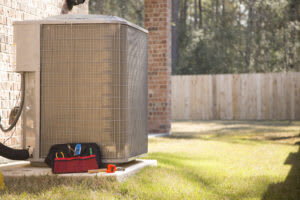 It’s a good idea to anticipate some of the A/C repairs you might need before the worst of the heat sets in for the summer. The loss of cooling during the hottest summer months isn’t good for you or your home. Temperatures can climb easily into the 90s inside, which could make your home uninhabitable until the A/C is fixed.
It’s a good idea to anticipate some of the A/C repairs you might need before the worst of the heat sets in for the summer. The loss of cooling during the hottest summer months isn’t good for you or your home. Temperatures can climb easily into the 90s inside, which could make your home uninhabitable until the A/C is fixed.
The best way to identify where your system is vulnerable is to have it serviced this spring. A licensed HVAC technician will go through your system carefully. During the inspection, he or she may turn up parts that are showing wear or signs of failing. The most common problem areas include:
Refrigerant coils.
The indoor and outdoor coils through which the refrigerant flows are copper or aluminum. Sometimes leaks form caused by loose connections or corrosion caused by air pollution or dirt. When your air conditioner doesn’t have enough refrigerant, the evaporator coil inside the air handler can freeze over. If the A/C continues to run, it’s possible for the compressor to burn out, which is the system’s most expensive part.
Electrical component failure.
Air conditioners have all sorts of electronics inside them. When it’s being serviced, the technician will spot the components that are close to failure. One of the most common A/C repairs and replacements we make is to the contactor, a switch that tells the A/C to turn on.
Fan belt failure.
Anything made from rubber in the desert tends to fail faster because of the dry air and high heat. The technician will check the belt and replace it before it has a chance to break.
Clogged drain lines.
If your system is equipped with a moisture sensor, it may stop running until you clear a clog in the drain pan or drainline. If you don’t have a sensor, the clog could cause a good deal of water damage to your home.
Finding the places that need A/C repairs early will spare you from an uncomfortable home when the temperatures get really hot. For a complete inspection of your cooling system, contact Hansberger Refrigeration and Electric Company, serving Yuma-area homeowners.